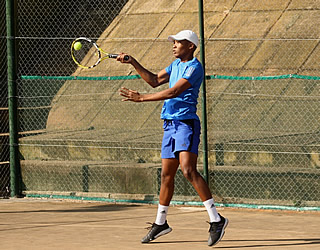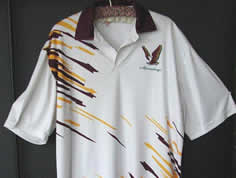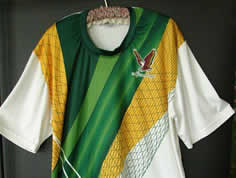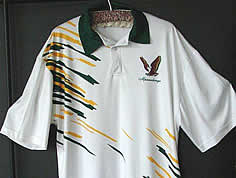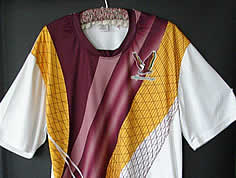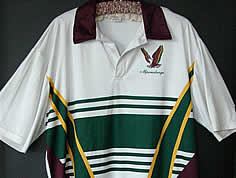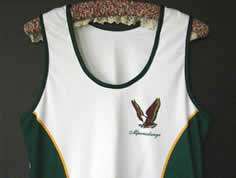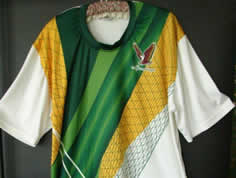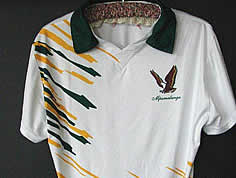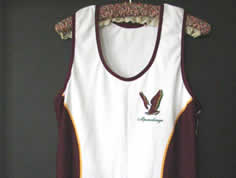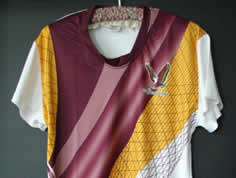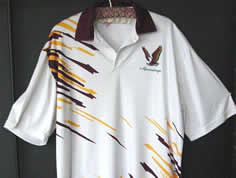NEWS ROOM
|
||||||||||||
|
||||||||||||
CLICK BELOW FOR PHOTOS |
||||||||||||
BASIC TENNIS ETIQUETTE |
||||||||||||
MP GRAND PRIX JUNIOR TOURNAMENT 2022 |
||||||||||||
The 2022 Women ’s Day long weekend in the Lowveld showcased sporting talents not only on the rugby field, but the tennis courts were sizzling as well. The annual Tennis South Africa (TSA) MP Grand Prix was played at Nelspruit Tennis Club, Panorama Tennis Club, Curro Nelspruit and Penryn College. For the first time ever, the men ’s and women ’s singles finalists and semi-finalists were awarded prize money thanks to the title sponsor, Westvaal Numbi Ford White River.
In the men’s singles final, played at Curro Nelspruit on Tuesday 9 August, the battle was between Reuben de Klerk and Christiaan Bell, both from North West Province. De Klerk prevailed 6-3, 6-4 to win the coveted R3 000 prize money. Finalists were awared R1 000, and semi-finalists R500 each. Bell and De Klerk teamed up in the doubles event and nearly won that too, narrowly losing to Luke Clifton and Neal Redfern, 6-2, 2-6, 10-8. Ana Vasilis of Maputo, Mozambique was the winner of the day on the women’s side. She stormed through her singles final over Annie van Schalkwyk of Gauteng North, 6-0, 6-0, before teaming up with fellow Mozambican Ilga Joao in the doubles. They defeated Kayla Steenekamp from Gauteng Central and the Lowveld’s Chané Steyn, 6-4, 6-0 in the final.
The under 16 boys’ singles final was contested by Gauteng Central’s Alexander Hristov and the Lowveld’s Heinrich Rootman, with Hristov winning 6-1, 6-0. Rootman avenged his singles loss, however, by pertnering up with fellow Lowveld Christian Smith to defeat Hristov and Rico du Plessis, 6-2, 6-4. In the under 16 girls’ draw, Gauteng Central’s Moroesi Tuoane defeated North West’s Annemie Pretorius, 6-1, 6-2. The under 16 girls were added into the women’s doubles draw.
In the under 14 boys’ draw, the final was an all Gauteng North affair, with number 2 seed Jayden Summers overcoming number one seed Niel Erasmus, 6-4, 6-1. Summers then teamed up with Alexander Bell to defeat Gauteng Central’s Franco Colin and Declan Halsey in nail-biter, 3-6, 7-6 and 10-6 in the doubles final.
Onto the under 14 girls, where Gauteng Central Marjan Japarova defeated number 2 seeded Nicola Kruger from Gauteng Central, 6-2, 6-1 in the final. Kruger subsequently teamed up with Jessica Kock from KZN, to defeat Japarova and Moodley in the doubles final, 6-4, 6-2. The under 12 boys’ final was contested between Keegan Groenewald and Zian Grobler, with Groenewald prevailing 6-3, 6-4. Grobler and Groenewald then teamed up to defeat Cameron Kock and Robbie Smuts, 2-6, 6-3 and 6-2 in the doubles final. Finally, KZN took another title in the under 12 girls’ draw, where Lily Haley defeated the Lowveld’s Milan van Heerden, 6-1, 6-0 in the singles final. Van Heerden then teamed up with fellow Lowvelder Shayna Lea to defeat two more Lowvelders in Heidi Hoffman and Simoné Swart. This doubles final went all the way, with van Heerden and Lea narrowly prevailing 4-6, 6-2, 10-6.
“On behalf of Lowveld Juniors, I would like to thank all the organisers involved in the administration of such a large tennis tournament. Special thanks to all the sponsors who contnuously support our juniors in the Lowveld, especially Westvaal Numbi Ford White River who made this specific tournament such a huge success,” said Chairperson Japie Janson.
The next TSA tournament in the Lowveld is the VDL Lowveld Slam from 9-11 September. |
||||||||||||
|
||||||||||||
MPUMALANGA TENNIS NEW CLOTHING |
||||||||||||
DRUG – FREE SPORTGENERAL INFORMATION ANTI-DOPING RULE VIOLATIONS
The Prohibited List is updated annually and can be viewed / downloaded from Using drugs to enhance athletic performance is against the rules laid down by the governing bodies of most recognized sports. It damages the integrity, image and value of sport, and contravenes the fundamental principles of sportsmanship and fair competition. INADVERTENT DOPING Remember – it is your responsibility to ensure that any product, preparation or medication you take does not contain prohibited substances. You may not knowingly take a drug which is classified as performance-enhancing, but if you are actively participating in competitive sport, you are at risk of testing positive. Make sure that the medical professional treating you is aware of the anti-doping requirement of your sports, and when competing abroad, check with your team doctor, international federation, or the national anti-doping agency of that country, before taking any medication. ATHLETES WITH SPECIAL NEEDS In addition, the list of prohibited methods applies strictly for athletes with a disability. However, in the instance of an athlete wit a physical, intellectual or visual disability, the process of sample collection may require the need for assistance, depending on the athlete’s disability. As an athlete you have the right to invite a member of your team management of your medical team to accompany, e.g. with carrying the sample collection vessel, pouring the sample in the A and B bottles, in interpretation into your own language, or “seeing” where you need to sign, you may ask the person accompanying you from your team to help. This should be reported in the comments section of the doping control form. If there is no one from your team who is able to assist you, you may ask the Doping Control Officer to assist. Such assistance or deviation from the normal process is legitimate where the outcome of the testing process and result are not affected by this, and the athlete’s rights have been respected. FREQUENTLY ASKED QUESTIONS Q ) Are the results of my test confidential? A ) Yes. Not even the laboratory is given any information that would allow the identity of the athlete to be determined. The copy of the Doping Control Form which is sent to the laboratory only has a sample number and declared medications on it. Q ) How long do drugs stay in my system? A ) It depends on the type of drug, your metabolism, the amount taken and the length of time you have been taking the drug – and this can vary from person to person. Some drugs leave the body fairly quickly, while others, such as marijuana, take much longer. It is your responsibility to ensure that any medications that are permitted out-of-competition, do not lead to a positive test result when participating in-competition. Q ) What if I can’t provide enough urine for a test? A ) The Doping Control Officer will wait as long as it takes for you to provide the required amount of urine for analysis purposes, and you will be provided with as many extra drinks as you need. Q ) What substances are tested for out-of-competition? A ) Out-of-competition testing is generally used to detect and defer the se of drugs which enhance training and recovery: anabolic steroids, diuretics, peptide and glycoprotein hormones and analogues, masking agents and pharmacological, chemical and physical manipulation techniques. Q ) What happens when I retire? A ) Check with your sports federation about their regulations regarding retirement, and notify them in writing. Some sports require that their athletes remain available for testing for a specified period after retirement. If you decide to revoke your retirement, you will be required to be available for drug testing before your first competition. Q ) What if I am going on holiday or traveling abroad and will not be available for out-of-competition testing? A ) It is your responsibility to ensure that your national sports federation and SAIDS can contact you at all times, and that they have up-to-date contact details for you. If you are going to be away from your normal home or work place, you must notify your federation and provide them with your itinerary and contact details for the period you are going to be away. Failure to provide this information may be considered a deliberate attempt to avoid testing, and may be considered the same as returning a positive test result. Q ) What sanctions are imposed for a positive drug test? A ) Depending on the nature of the offence, sanctions can range from a warning to a 2 years ban. A second offence may incur a life ban. Some sports federations also impose financial penalties. Make sure you know your sports anti-doping regulations and penalties for a positive test result. Q ) What if I have to take a prohibited substance for a medical condition such as asthma or hay fever, but am still fit enough to compete? A ) There may be a suitable alternative which does not contain a prohibited substance. Make sure the medical practitioner treating you knows the anti-doping regulations of your sport and the classes of substances that are prohibited in your sport. If you have to take a prohibited medication for therapeutic purposes and no suitable alternative is available, refer to your sports federation to establish whether your federation’s doping rules permit its use for legitimate, medically justified reasons, and if so, the procedures required for therapeutic use exemption. Q ) How will I know the results of my drug test? A ) The South African institute for Drug-Free Sport will forward your test results to your national sports federation. Q ) Ho do I know that the person asking me to provide a sample is a Doping Control Officer? A ) The South African Institute for Drug-Free Sport has Doping Control Officers based throughout the country who are highly experienced and trained to international standards. They all carry identification cards, and should show this to athletes when notifying them that they have been selected for a drug test. You are entitled to ask to see written authorization from SAIDS in respect of the drug tests. DOPING CONTROL PROCEDURE Testing of an athlete to detect a prohibited substance or the use of a prohibited method consists of
IN COMPETITION TESTING takes place at sports events. SAIDS’ Doping Control Officers oversee the selection process, collect the samples and dispatch them to the laboratory by secure means. Selection of athletes for in-competition testing is determined by the rules of the sports federation and may target placing in the event, random selection, a set number of players from each team, qualifying for national representation, breaking a national or international record. OUT-OF-COMPETITION TESTING takes place at any time of the year and any location – the athlete’s home, lace of training, selection and training camps, or while competing abroad. Out-of-competition testing takes place at short or no notice. ADVICE TO ATHLETES
NOTIFICATION You will be asked not to pass urine until you reach the Doping Control Station. The DCO, or a DCO-appointed chaperone, will stay with you until you report to the Doping Control Station. A representative from your sports federation may accompany you to the Doping Control Station, but will not be permitted to witness the passing of your sample. REPORTING FOR TESTING SELECTION OF SAMPLE COLLECTION VESSEL PROVIDING A SAMPLE UNDER SUPERVISION ATHLETES WITH DISABILITIES SELECTING YOUR SECURE SAMPLE CONTAINER BREAKING THE SECURITY SEAL DIVIDING THE SAMPLE CHECKING pH AND CONCENTRATION OF THE SAMPLE SEALING THE BOTTLES PROVISION OF AN INSUFFICIENT SAMPLE: FINAL PAPERWORK The DCO will also check and sign this form in your presence. You will be provided with the Athlete’s Copy of the completed Coping Control Form. Keep this in a safe place until the result of your test is known. TRANSPORTING THE SAMPLES TO THE LABORATORY LABORATORY ANALYSIS POSITIVE TEST RESULT REINSTATEMENT TESTING If an athlete has been suspended or retires from sport and later seeks reinstatement, he/she will not be eligible for reinstatement until he/she has been subject to out-of-competition testing for a period of time equal to the reinstatement period stipulated by the international Federation/National Federation. Immediately prior to the end of a suspension period the athlete must undergo out-of-competition testing. ATHLETES’ RIGHTS AND RESPONSIBILITIES
YOUR RESPONSIBILITIES
|
||||||||||||
DRUG – FREE SPORTGENERAL INFORMATION ANTI-DOPING RULE VIOLATIONS
The Prohibited List is updated annually and can be viewed / downloaded from Using drugs to enhance athletic performance is against the rules laid down by the governing bodies of most recognized sports. It damages the integrity, image and value of sport, and contravenes the fundamental principles of sportsmanship and fair competition. INADVERTENT DOPING Remember – it is your responsibility to ensure that any product, preparation or medication you take does not contain prohibited substances. You may not knowingly take a drug which is classified as performance-enhancing, but if you are actively participating in competitive sport, you are at risk of testing positive. Make sure that the medical professional treating you is aware of the anti-doping requirement of your sports, and when competing abroad, check with your team doctor, international federation, or the national anti-doping agency of that country, before taking any medication. ATHLETES WITH SPECIAL NEEDS In addition, the list of prohibited methods applies strictly for athletes with a disability. However, in the instance of an athlete wit a physical, intellectual or visual disability, the process of sample collection may require the need for assistance, depending on the athlete’s disability. As an athlete you have the right to invite a member of your team management of your medical team to accompany, e.g. with carrying the sample collection vessel, pouring the sample in the A and B bottles, in interpretation into your own language, or “seeing” where you need to sign, you may ask the person accompanying you from your team to help. This should be reported in the comments section of the doping control form. If there is no one from your team who is able to assist you, you may ask the Doping Control Officer to assist. Such assistance or deviation from the normal process is legitimate where the outcome of the testing process and result are not affected by this, and the athlete’s rights have been respected. FREQUENTLY ASKED QUESTIONS Q ) Are the results of my test confidential? A ) Yes. Not even the laboratory is given any information that would allow the identity of the athlete to be determined. The copy of the Doping Control Form which is sent to the laboratory only has a sample number and declared medications on it. Q ) How long do drugs stay in my system? A ) It depends on the type of drug, your metabolism, the amount taken and the length of time you have been taking the drug – and this can vary from person to person. Some drugs leave the body fairly quickly, while others, such as marijuana, take much longer. It is your responsibility to ensure that any medications that are permitted out-of-competition, do not lead to a positive test result when participating in-competition. Q ) What if I can’t provide enough urine for a test? A ) The Doping Control Officer will wait as long as it takes for you to provide the required amount of urine for analysis purposes, and you will be provided with as many extra drinks as you need. Q ) What substances are tested for out-of-competition? A ) Out-of-competition testing is generally used to detect and defer the se of drugs which enhance training and recovery: anabolic steroids, diuretics, peptide and glycoprotein hormones and analogues, masking agents and pharmacological, chemical and physical manipulation techniques. Q ) What happens when I retire? A ) Check with your sports federation about their regulations regarding retirement, and notify them in writing. Some sports require that their athletes remain available for testing for a specified period after retirement. If you decide to revoke your retirement, you will be required to be available for drug testing before your first competition. Q ) What if I am going on holiday or traveling abroad and will not be available for out-of-competition testing? A ) It is your responsibility to ensure that your national sports federation and SAIDS can contact you at all times, and that they have up-to-date contact details for you. If you are going to be away from your normal home or work place, you must notify your federation and provide them with your itinerary and contact details for the period you are going to be away. Failure to provide this information may be considered a deliberate attempt to avoid testing, and may be considered the same as returning a positive test result. Q ) What sanctions are imposed for a positive drug test? A ) Depending on the nature of the offence, sanctions can range from a warning to a 2 years ban. A second offence may incur a life ban. Some sports federations also impose financial penalties. Make sure you know your sports anti-doping regulations and penalties for a positive test result. Q ) What if I have to take a prohibited substance for a medical condition such as asthma or hay fever, but am still fit enough to compete? A ) There may be a suitable alternative which does not contain a prohibited substance. Make sure the medical practitioner treating you knows the anti-doping regulations of your sport and the classes of substances that are prohibited in your sport. If you have to take a prohibited medication for therapeutic purposes and no suitable alternative is available, refer to your sports federation to establish whether your federation’s doping rules permit its use for legitimate, medically justified reasons, and if so, the procedures required for therapeutic use exemption. Q ) How will I know the results of my drug test? A ) The South African institute for Drug-Free Sport will forward your test results to your national sports federation. Q ) Ho do I know that the person asking me to provide a sample is a Doping Control Officer? A ) The South African Institute for Drug-Free Sport has Doping Control Officers based throughout the country who are highly experienced and trained to international standards. They all carry identification cards, and should show this to athletes when notifying them that they have been selected for a drug test. You are entitled to ask to see written authorization from SAIDS in respect of the drug tests. DOPING CONTROL PROCEDURE Testing of an athlete to detect a prohibited substance or the use of a prohibited method consists of
IN COMPETITION TESTING takes place at sports events. SAIDS’ Doping Control Officers oversee the selection process, collect the samples and dispatch them to the laboratory by secure means. Selection of athletes for in-competition testing is determined by the rules of the sports federation and may target placing in the event, random selection, a set number of players from each team, qualifying for national representation, breaking a national or international record. OUT-OF-COMPETITION TESTING takes place at any time of the year and any location – the athlete’s home, lace of training, selection and training camps, or while competing abroad. Out-of-competition testing takes place at short or no notice. ADVICE TO ATHLETES
NOTIFICATION You will be asked not to pass urine until you reach the Doping Control Station. The DCO, or a DCO-appointed chaperone, will stay with you until you report to the Doping Control Station. A representative from your sports federation may accompany you to the Doping Control Station, but will not be permitted to witness the passing of your sample. REPORTING FOR TESTING SELECTION OF SAMPLE COLLECTION VESSEL PROVIDING A SAMPLE UNDER SUPERVISION ATHLETES WITH DISABILITIES SELECTING YOUR SECURE SAMPLE CONTAINER BREAKING THE SECURITY SEAL DIVIDING THE SAMPLE CHECKING pH AND CONCENTRATION OF THE SAMPLE SEALING THE BOTTLES PROVISION OF AN INSUFFICIENT SAMPLE: FINAL PAPERWORK The DCO will also check and sign this form in your presence. You will be provided with the Athlete’s Copy of the completed Coping Control Form. Keep this in a safe place until the result of your test is known. TRANSPORTING THE SAMPLES TO THE LABORATORY LABORATORY ANALYSIS POSITIVE TEST RESULT REINSTATEMENT TESTING If an athlete has been suspended or retires from sport and later seeks reinstatement, he/she will not be eligible for reinstatement until he/she has been subject to out-of-competition testing for a period of time equal to the reinstatement period stipulated by the international Federation/National Federation. Immediately prior to the end of a suspension period the athlete must undergo out-of-competition testing. ATHLETES’ RIGHTS AND RESPONSIBILITIES
YOUR RESPONSIBILITIES
TENNIS RULESIn this rule discussion we will discuss the more relevant rules and explain the different scenarios in case studies. FOOT FAULT During the service motion, the server shall not: • Change position by walking or running, although slight movements of the feet are permitted; or • Touch the baseline or the court with either foot; or • Touch the area outside the imaginary extension of the sideline with either foot; or • Touch the imaginary extension of the centre mark with either foot. If the server breaks this rule it is a "Foot Fault". Case 1: In a singles match, is the server allowed to serve standing behind the part of the base line between the singles sideline and the doubles sideline? Decision: No. in this case the extension of the sideline is the line for the singles court. Case 2: Is the server allowed to have one or both feet off the ground when he contacts the ball? Decision: Yes, as long as he did not touch the line or the inside of the court before he made contact with the ball. Case 3: A server takes position with one foot on the baseline. He then repositions his foot behind the line, and begins his toss. Is this a foot fault? Ruling: No, this is not a foot fault, if, in the judgment of the official, the server's feet were at rest in the new position immediately before beginning the delivery of a service. However, in the case where the toss has commenced and the movement of his foot off the line is part of the motion, then this will be a foot fault. Who can call a foot fault? • An official on court. Including the chair umpire, linesmen on the baseline, centre service line, or long line. In the case of an official on court, the call will be made immediately. No warning will be given. • An court monitor (Roving umpire) The procedure should be that on the change over the court monitor go on court and inform the player of the foot fault and inform him that he will be calling the foot fault on the next occasion. To call the foot fault, the court monitor must be opposite the baseline (or the line involved). The warning given on the change over is not related to a code violation. PLAYERS' DRESS AND EQUIPMENT Unacceptable Attire • Sweatshirts • Gym shorts • Dress skirts • T - shirts or any other inappropriate attire may not be worn during the match. This includes the warm - up. A plain t - shirt with no logo on may be worn. Also a t - shirt hand out by the specific tournament may be worn, but only during that tournament. Visible identification • Shirt. Sweater or jacket One commercial (non manufacturer's) identification for each sleeve, neither exceeding 3 inches plus one manufacturer's logo net exceeding 2 inches. On the front, back and collar, two logos of the manufacturer (2 inches) or one logo of the manufacturer (3 inches). No commercial logos on the front, back or collar. Shorts, skirts, tracksuit bottom Shorts: Two logos of the manufacturer(2 inches) or one logo of the manufacturer (3 inches) No commercial logos allowed. Skirts: Two logos of the manufacturer (2 inches) or one logo of the manufacturer (3 inches) will be permitted on the front lower panels of the skirt Tracksuit bottoms: One manufacturer's logo of three square inches is permitted. |
||||||||||||
TOP GUNS 2019
|
||||||||||||
|










